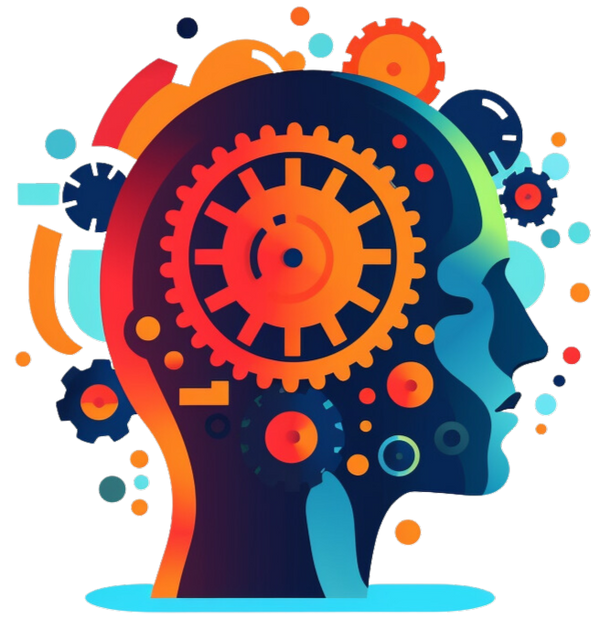
5 things I learned from the last crisis
Share
There are things that knock you off your feet. And when you get back up, you're a different person. My last crisis involved a breakup—but it brought me a deeper connection to myself.
" Vindica te tibi ," wrote the Roman philosopher Seneca in his "Moral Letters," circa 62 AD. "Save yourself" is a fitting translation—or "claim yourself for yourself." It's good advice, but I never really understood the phrase. Until my last life crisis, which was also a real "trip from hell." Now I know what the man meant. Furthermore, the following five things are now clear to me:

1. Words are sometimes nothing, actions are always actions
Yes, kind of logical. After all, not everything that is spoken or written actually comes to fruition. People with ADHD can certainly relate to this . On the other hand, we are also seen as very direct, honest, straightforward, and loyal. Perhaps not least because we know what it's like when you can't rely on someone. Specifically: on ourselves – and our patchy short-term memory. During a separation, I learned that words – promises – can sometimes mean the exact opposite. That lies are sometimes told about things that determine the structure of a family.
But I've also learned that completely spontaneous actions—like clearing out a shared room and giving someone a quick helping hand—can be like taking your first breath after two minutes underwater. It doesn't matter what's said or written in this world. It's just letters and syllables. What's done, however, has an impact. Sometimes avalanches start rolling. Sometimes it's just a blanket being turned over in a different place (thanks, Jvan S.). But something is always achieved.

2. There is usually a little more pain...
"I could never endure that," "I would act this way and that," "That would destroy me." We should be cautious with such statements. In the end, they become self-fulfilling prophecies. You only discover how much you can truly endure when you face a life crisis. What I've discovered: Most of the time, you can handle much more than you once thought possible. Are you confident, cool, and full of vitality? Not really. You cry, sweat soak the sheets, and in the morning you look like Dr. Frankenstein's monster after a lightning strike. It's alive, but somehow it's not particularly trustworthy or socially acceptable.
Lying awake for hours, crying bitter tears, weeks of nervousness, overwhelming anxiety, paranoid fantasies, waves of aggression, despair, heartburn, chest tightness...yes, it's all there. It hurts so much that you'd rather get a blow to the temple and then be sent to a coma. But you actually survive the whole thing. Nevertheless, I would advise everyone to spend a few hours with a mental health professional during this phase.

3. Where it is darkest, the greatest power resides
Yes, cherries grow in the sun (and cherry picking is always possible, not just in summer). But inner strength doesn't. It thrives best where it's really dark. The British philosopher Alan Watts , who made teachings from Buddhism, Hinduism, and Taoism accessible to a broad Western audience, coined the so-called " Backward Law ":
Desiring a positive experience is itself a negative experience. Accepting a negative experience is a positive experience.
Examples?
The desire for control: We will feel increasingly powerless the more we try to control our feelings and impulses. Our emotional life is chaotic and often uncontrollable, and our desire to control it only exacerbates the problem. Accepting that we can't control everything, on the other hand, makes us calmer and more relaxed. The Greeks called it " stoicism ."
The desire for love: The more we try to get others to love and accept us, the less they will. And, more importantly, the less we will be able to love and accept ourselves. Letting go and doing good things for ourselves, on the other hand, brings inner peace. And that, in turn, is enormously attractive to other people.
In addition, the outcome of desired and then realized positive external experiences rarely matches what we longed for "in the deficit." The resulting disappointment may make us search even more intensely and become even more desperate. The feeling, however, that arises when we have successfully completed inner work is always overwhelmingly positive.
When I began to allow the negative experience of heartbreak to take hold of me like a blood-sucking, mutated giant mosquito, it became incredibly painful. But since I've been feeling better, I wake up every morning knowing that I've personally overcome something truly destructive and survived relatively unscathed.
An indescribably beautiful, centered feeling. Simply raw vitality.

4. True love always springs from true self-love
This hasn't been a secret for a long time (see Seneca above and all those who have since copied from the Greek philosophers ), but it doesn't hurt to say it again. We only perceive ourselves unadulterated and with all our senses. Our assumptions about the feelings of others are always a projection of our own experiences ("I would probably feel sad in a situation like that").
Would we entrust our children to someone who has zero experience with children? Hardly. The problem is, we all have an "inner child" within us —hurt parts that are often accompanied by feelings of guilt, shame, or inadequacy. People who have accepted these parts in themselves can also accept them in others.
Anyone who hasn't done this will hardly be able to deal with it when others display it. How could they? They've never practiced it. It's all quite difficult, sad, perhaps even annoying at first. Because love always requires a great deal of acceptance. But how can you accept what you hate about yourself elsewhere? "Squaring the circle" or "nailing the pudding to the wall" is much easier.
Self-love has nothing to do with selfishness. It primarily means having enough tolerance and compassion for one's own mistakes – and not always judging oneself for what one isn't yet good enough at. This develops a certain patience. And patience, as every mother and father knows, is absolutely essential in the love of children – both "inner" and outer.
Would you prefer Christian values to ancient philosophy and New Age? That's fine, too. "Love your neighbor as yourself ," said Jesus ( Matthew 22:37–39 ) . That requires that you love yourself to some extent. Otherwise, your neighbor might be better off with a large beer.

5. We are all alone, but we can talk about it together
Another day that has only hurt, another sleepless night, or fragmented nightmares. If you take a quick look at where it hurts the most in these moments (often the chest or stomach area), it quickly becomes clear: We come alone – and we will leave alone. It's frightening and can feel like a headlong fall in a broken elevator with no emergency brakes. But it's also the same for everyone. "Claim yourself," wrote Seneca. "Thus it will come to pass that if you lay your hand on today, you will depend less on tomorrow."
You can also place your hand on your chest or stomach. Then you're still just as alone, but with a warm hand on your body. And there are quite a few people, good friends, with whom it's wonderful to talk about these things. And: if they're honest, they feel exactly the same. That warm feeling that others understand exactly how IT feels is also present in the room. And maybe there's a good glass of wine on the table .
"Solitude is a beautiful thing, but you need someone to tell you that solitude is a beautiful thing," wrote the Frenchman Honoré de Balzac. That's a bit absurd, but so is life on a rapidly spinning, 4.5 billion-year-old sphere surrounded by an endless universe at minus 273 degrees Celsius .

